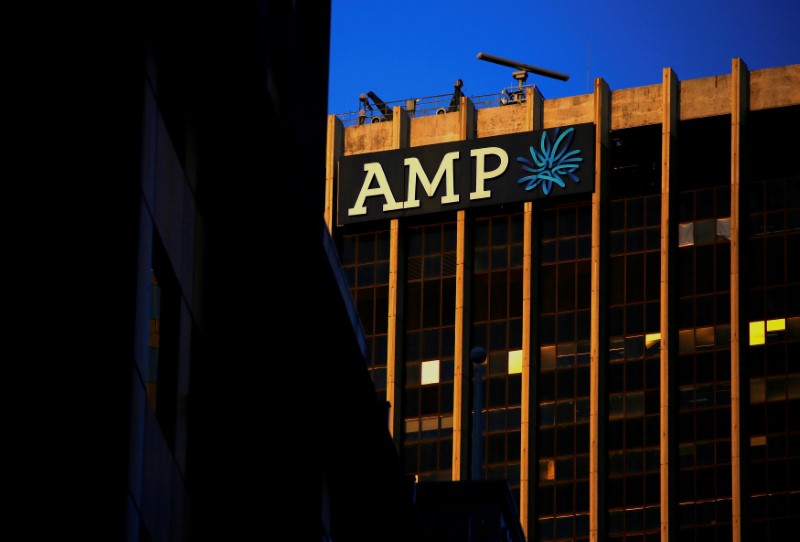By Paulina Duran and Byron Kaye
SYDNEY (Reuters) - Top Australian wealth manager AMP Ltd faced an investor revolt at its annual meeting on Thursday, with shareholders voting overwhelmingly against its executive pay plans in the wake of damaging revelations of board-level misconduct.
A director was also narrowly re-elected in the face of a sizeable protest vote as the company scrambles to restore trust amid allegations it charged fees for no service, doctored an independent report and lied to regulators.
The vote against the company's executive pay sets the 169-year-old company up for a possible board spill. If more than a quarter of shareholders vote against the pay proposal for two years running, they can call for the board to be removed.
"We've let you the shareholder down, we've let the company down and we've let the community down," Interim Executive Chairman Mike Wilkins told the two-and-a-half hour meeting in Melbourne.
AMP's share price has lost a sixth of its value, wiping A$2.1 billion ($1.6 billion) off the firm's market capitalization, since mid-April when an independent inquiry into Australia's financial sector exposed serious flaws in its governance, accountability and culture. The inquiry may recommend criminal charges.
Three directors quit this week including two facing re-election at Thursday's meeting, while the chairman, CEO and chief lawyer had already departed over the scandal.
The director re-elected on Thursday, Andrew Harmos, received 62 percent of the vote, well short of the near-unanimous support directors of large Australian companies usually get.
BlackRock Inc (NYSE:BLK), the world's largest asset manager and AMP's second-largest shareholder, said in a statement that while Harmos "bears some responsibility" for the misconduct it supported his election to ensure the board could "function appropriately".
Investment manager Australian Ethical said it had offloaded its A$8 million stake in AMP, first instance of a divestment on ethical grounds from a financial firm cited in the inquiry.
"AMP knowingly and deliberately misled regulators and there is sufficient evidence to show that these breaches are not isolated incidents," said Stuart Palmer, head of ethics research at Australian Ethical.
AMP shares closed down 2.9 percent, while the broader market finished up 0.2 percent.
LAWSUITS, COSTS
The Royal Commission inquiry has exposed Australia's richest financial firms to unprecedented public scrutiny, raising costs and squeezing margins amid calls for tighter regulation and stiffer penalties.
AMP, whose name has been synonymous with financial planning in Australia for decades, said it would defend itself against two class-action lawsuits filed on behalf of shareholders seeking damages for the board's failure to disclose its governance issues sooner.
The lawsuits were filed by global law firm Quinn Emanuel Urquhart & Sullivan and Melbourne-based Phi Finney McDonald.
Australian litigation financier IMF Bentham is also planning another class action against AMP.
Wilkins said costs likely would mount as the firm worked to resolve the issues identified by the inquiry.
AMP expected a review of the fees it paid financial planners would lead to further "customer remediation costs and associated expenses".
Some customers were closing their accounts, he added.
"Not surprisingly, we did see some increase in customer call-center enquiries and withdrawal requests, although this has eased back in recent days," he said.
One shareholder told Wilkins during the meeting that many investors would like to see the board roasted "on a spit".
"On a spit I don't think I'd be very tasty," responded Wilkins, a director who stepped into the CEO role after predecessor Craig Meller resigned in April.
